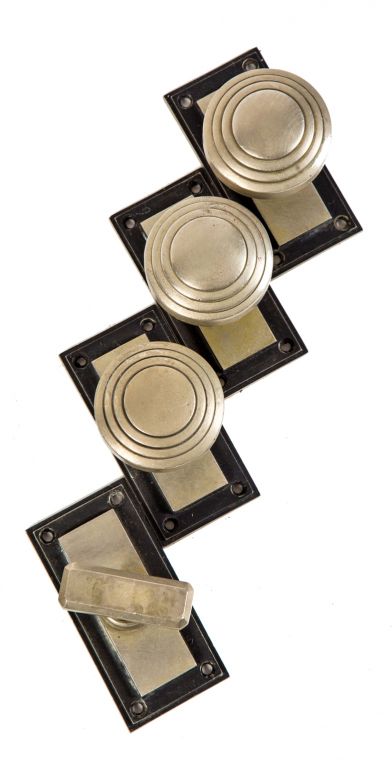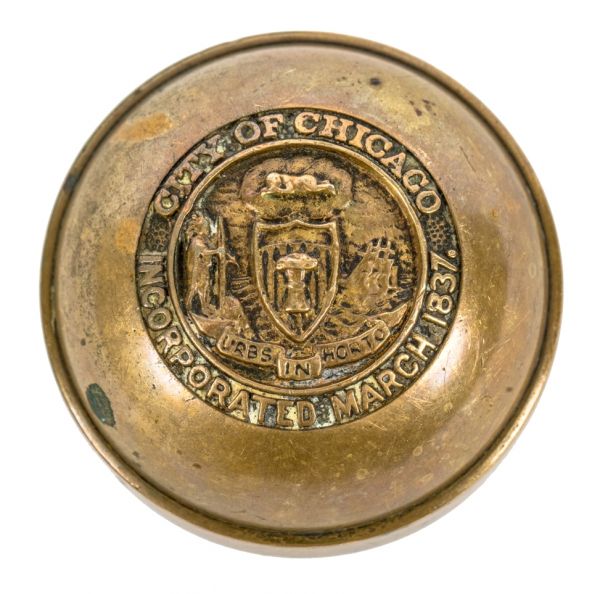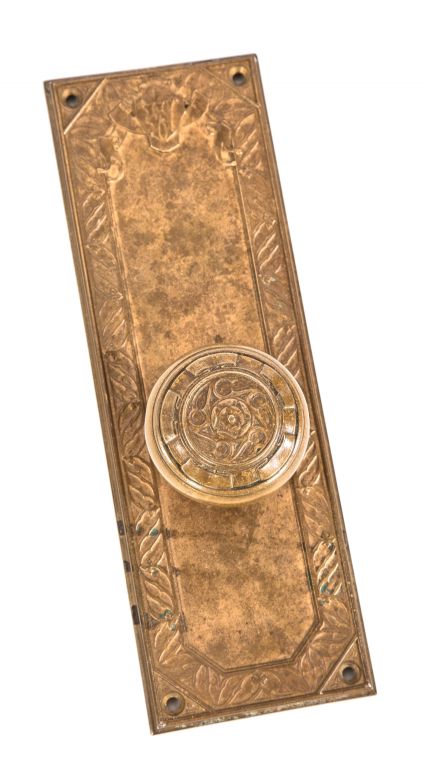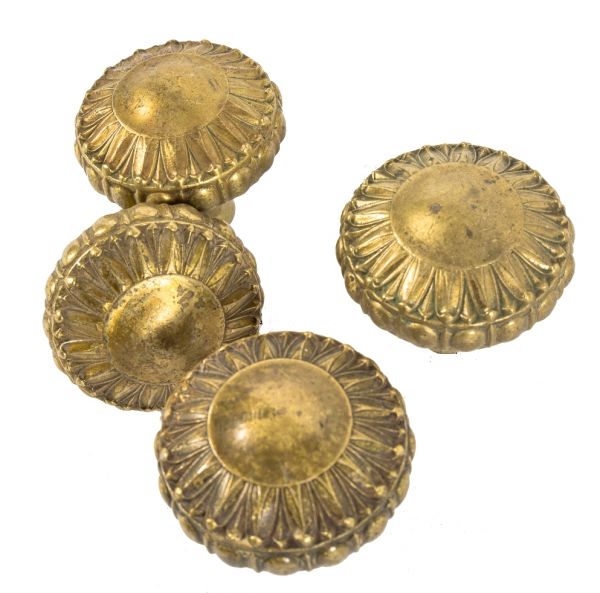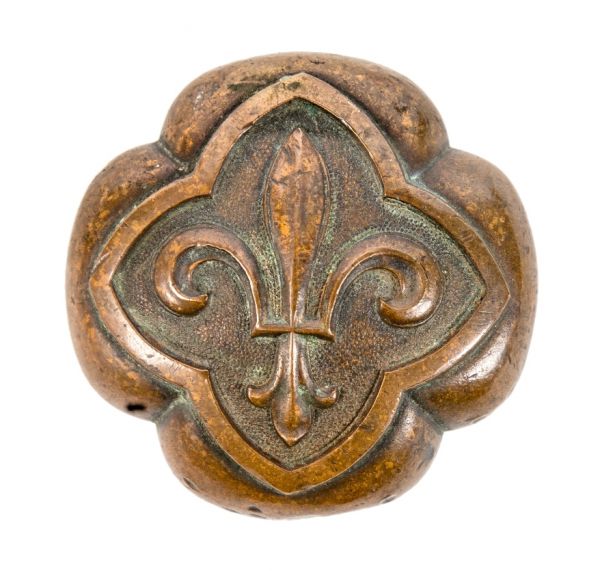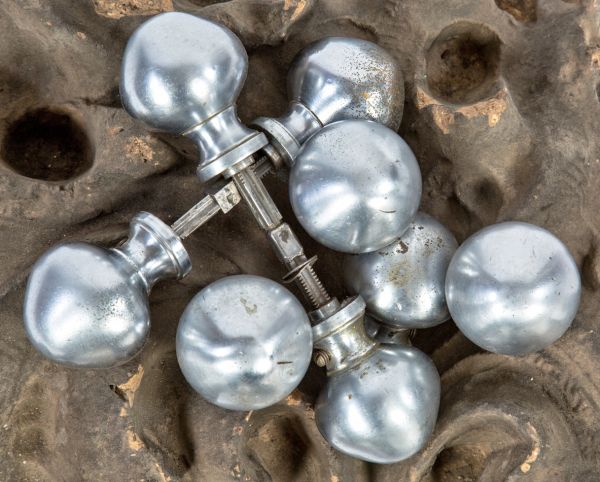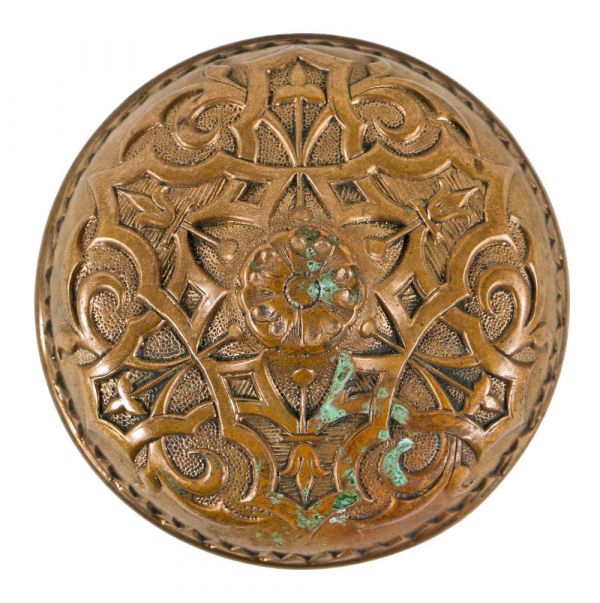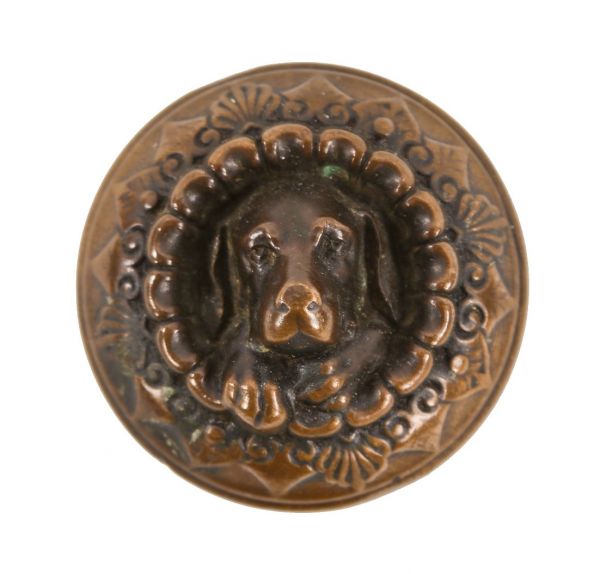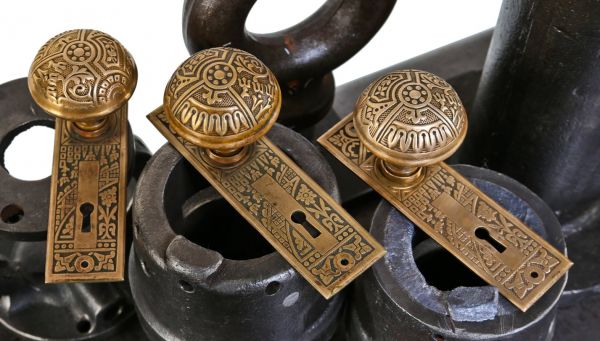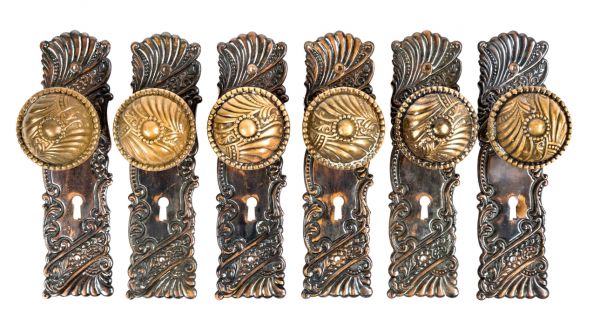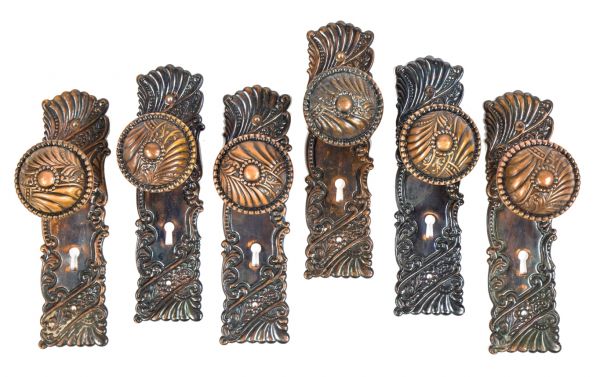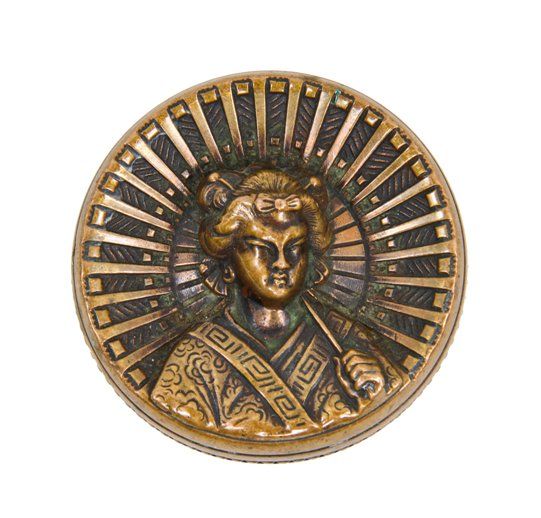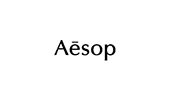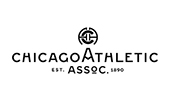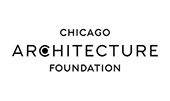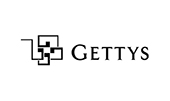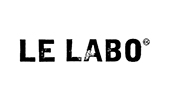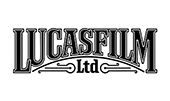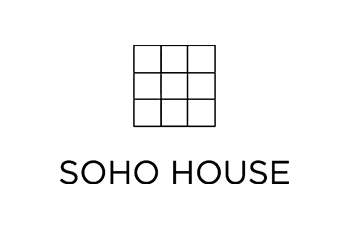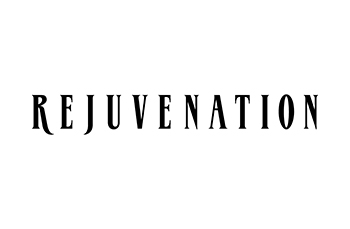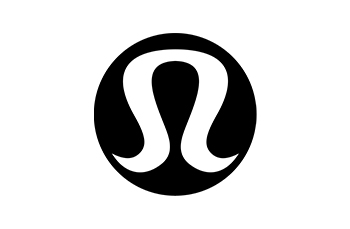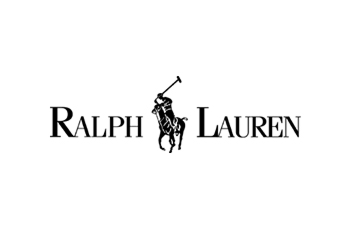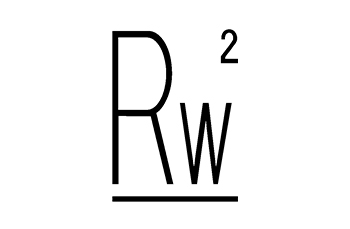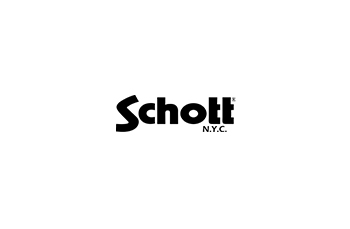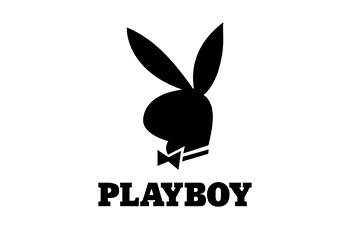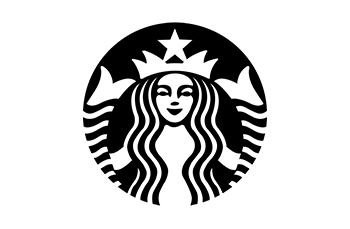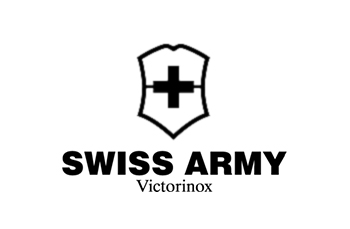group of original nickel plated c. 1930 machine age art deco cast bronze chicago board of trade interior trading room diminutive doorknobs with matching backplates
BLDG. 51 MUSEUM COLLECTION
In stock
SKU
UR-29665-18
p. & f. corbin company, new britain, ct.
lot of original and intact nickel-plated bronze chicago board of trade building interior office doorknobs and matching diminutive backplates salvaged around 1973 when the trading room floor was heavily modified. the hardware was executed by the p. & f. company, new britian, ct. the matching doorknobs have a simple streamlined pattern with graduated concentric rings or circles. the small backplates are accentuated with a baked black enameled finish. the original nickel-plated finish is amazingly intact and uniform throughout. priced for the group of four. the extant chicago board of trade building is located at 141 w. jackson boulevard at the foot of the lasalle street canyon in downtown chicago. the 141 w. jackson address hosted the former tallest building in chicago designed by william w. boyington before the current holabird & root structure, which held the same title for over 35 years until being surpassed in 1965 by the richard j. daley center. in 1925, the chicago board of trade commissioned holabird & root to design the current building, with hegeman & harris as general contractors. clad in gray indiana limestone and topped with a copper pyramid roof, the art deco-styled building opened on june 9, 1930. the chicago board of trade has operated continuously on its twelfth floor since the 1930 opening, dedicating 19,000 square feet to what was then the world's largest trading floor. the advent of steel frame structural systems allowed completely vertical construction; but as with many skyscrapers of the era, the exterior was designed with multiple setbacks at increasing heights, which served to allow additional light into the ever-deepening concrete valleys in urban cores. at night, the setbacks are upwardly lit by floodlights, further emphasizing the structure's vertical elements. the night illumination design was a common contemporary chicago architectural theme, seen also in the wrigley building, the jewelers building, the palmolive building, the lasalle-wacker building, and the tribune tower. interior decoration includes polished surfaces throughout, the use of black and white marble, prominent vertical hallway trim, and an open three-story lobby which at the time of opening housed the world's largest light fixture. known for its work on the brooklyn bridge, the family-operated factory of john a. roebling supplied all of the cables used in the building's 23 otis elevators. although the building was commissioned for the chicago board of trade, its first tenant was the quaker oats company, which moved in on may 1, 1930.sculptural work by alvin meyer, the one-time head of holabird & root's sculpture department, is prominent on the building's façade, and represents the trading activities within. on each side of the exterior clock facing lasalle street are hooded figures, an egyptian holding grain, and a native american holding corn. similar figures are repeated at the uppermost corners of the central tower, just below the sloping roof. above street level, representations of bulls protrude directly from the limestone cladding on the building's north side and to a lesser degree on the east side, a reference to a bull market. the central structure is capped by a 6,500 pound, 31 ft. tall aluminum statue of the roman goddess of grain, ceres, holding a sheaf of wheat in the left hand and a bag of corn in the right hand, as a nod to the exchange's heritage as a commodities market. this statue was assembled from 40 pieces. as it is near the forty-five story point, sculptor john h. storrs believed that no other building would be tall enough for the inhabitants to clearly see the statue's face, and therefore it was left blank.
You Might Also Like
WORDLWIDE SHIPPING
If required, please contact an Urban Remains sales associate.
NEW PRODUCTS DAILY
Check back daily as we are constantly adding new products.
PREMIUM SUPPORT
We're here to help answer any question. Contact us anytime!
SALES & PROMOTIONS
Join our newsletter to get the latest information

